
THE ORANGE PEEL CLEMATIS Clematis tangutica The Garden of Eaden
I have lusted after Clematis tangutica, the late-flowering beauty with the common name golden clematis or sometimes orange-peel clematis due to its thick petals (really: sepals). And I have planted Clematis tangutica. And, like many of the clematis I've grown, I have killed Clematis tangutica.
Clematis 'Orange Peel' / 'Last Dance' Clematis orientalis 'Orange Peel' / 'Last Dance
£17.99 Product ref: C15432 Availability: In stock Displaying masses of rich yellow, bell-shaped flowers from July to September and finely divided, mid-green leaves, it is easy to see why the name 'orange peel' originated.

Clématite Orange Peel Clematis tibetana à clochettes jaune orangé
Clematis tangutica - This Group 3 species is known as golden clematis or orange peel clematis. It produces beautiful lantern-like yellow flowers that have a nodding habit. Clematis tangutica 'Golden Tiara' - This gorgeous Group 3 golden variety produces bright yellow flowers that open up into four petals. The central florets are dark green.
Wild Flowers of Wexford Clematis tangutica Orangepeel Clematis new to Wexford
Height x Spread: 3m x 1.5m 2 Clematis alpina Clematis for shade - Clematis alpina Clematis alpina is a group 1 clematis, flowering in spring. Its cream-centred, purple-blue flowers contrast beautifully with dark green foliage, and are followed by fluffy seedheads. It's perfect for growing up a north- or east-facing wall or fence. H x S: 3m x 1.5m 3
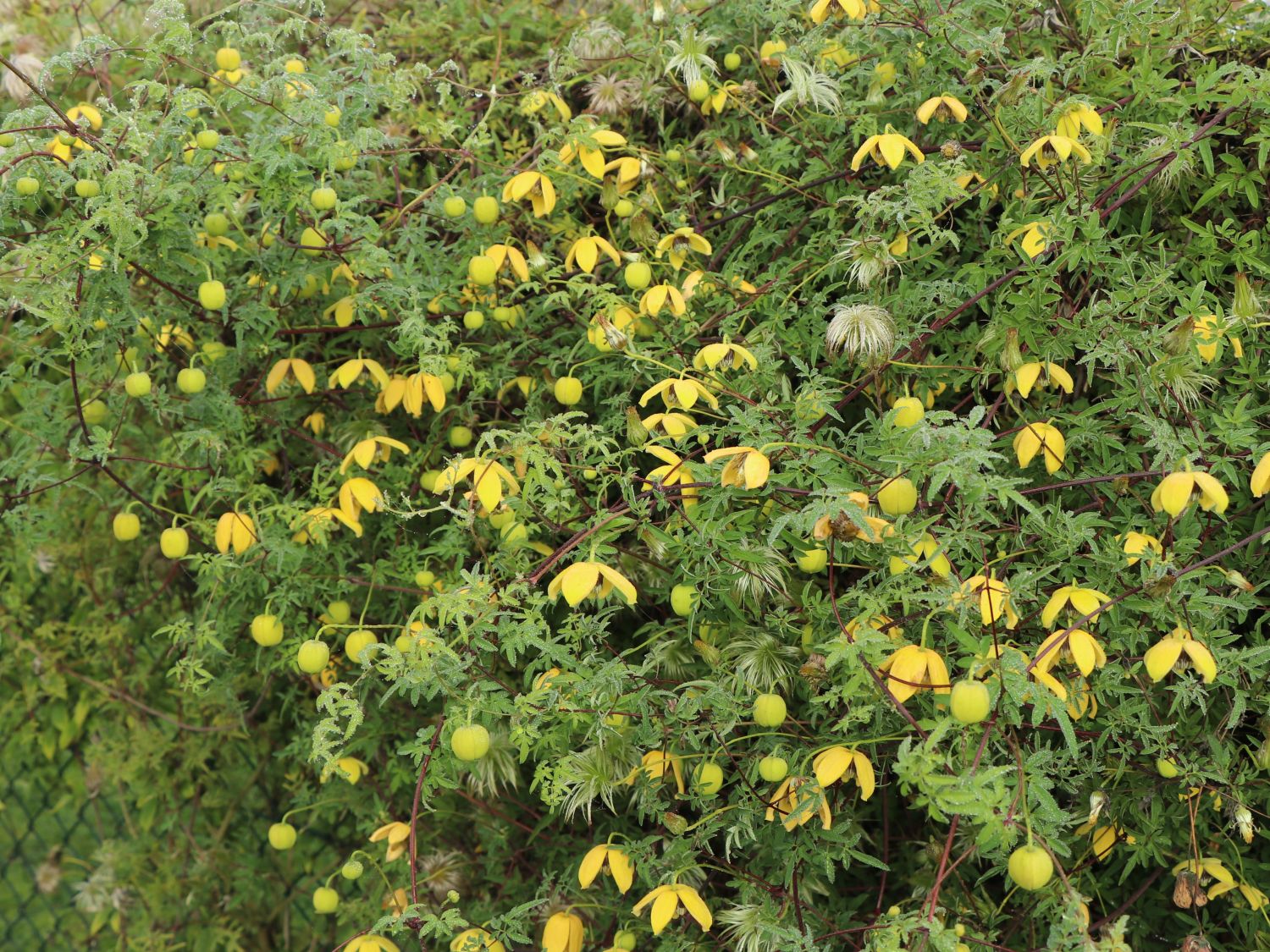
Clematis 'Orange Peel' / 'Last Dance' Clematis orientalis 'Orange Peel' / 'Last Dance
'Orange Peel' is a deciduous, perennial climber with pinnate, dark green leaves and nodding, bell-shaped, yellow flowers from midsummer into autumn. Flowers are followed by silky seed heads that persist into winter. Season of interest Height and spread Metric | Imperial Where to grow Soil type Chalky Clay Loamy Sandy Soil drainage
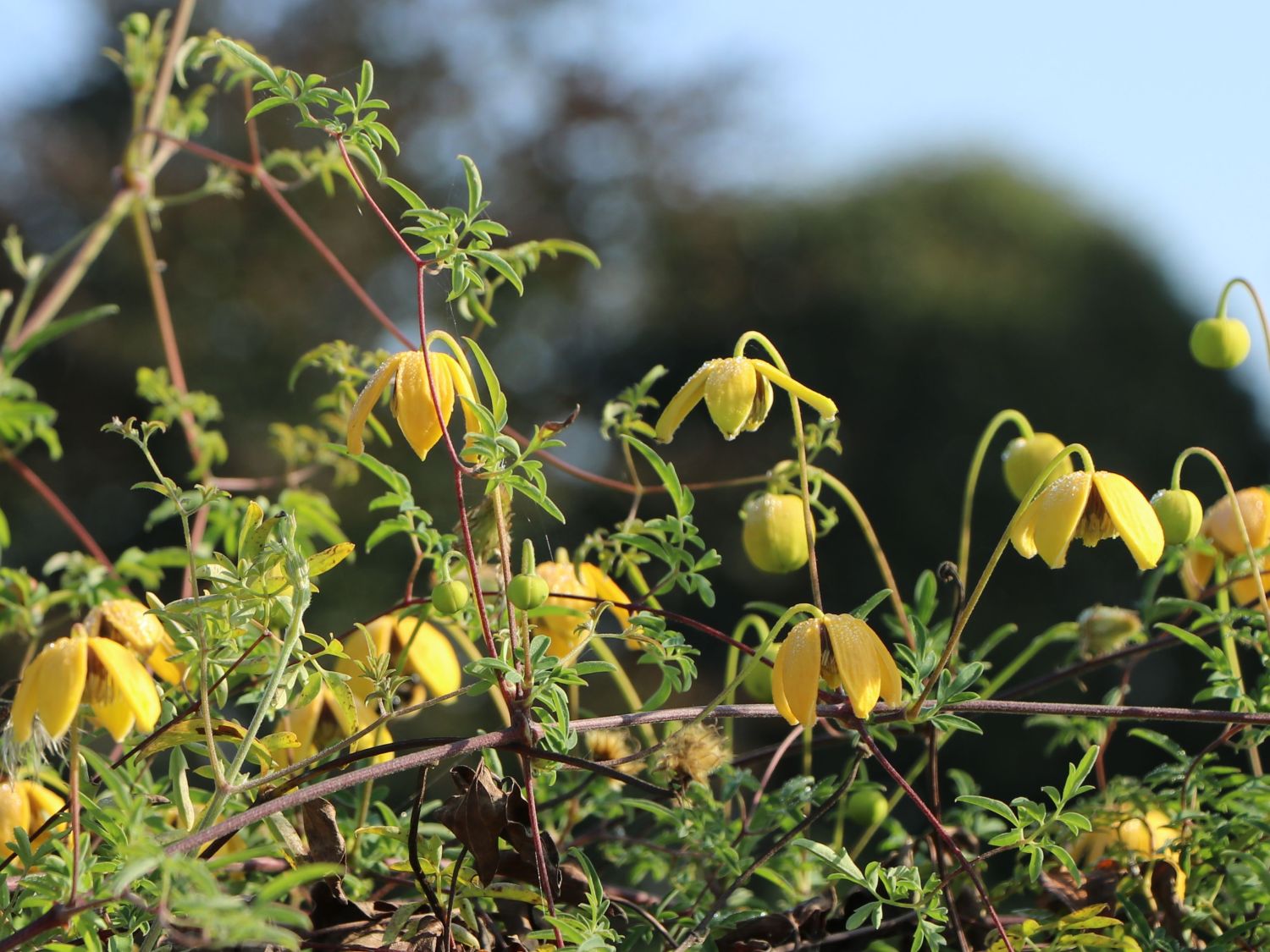
Clematis 'Orange Peel' / 'Last Dance' Clematis orientalis 'Orange Peel' / 'Last Dance
Orange Peel Clematis . Grow Zone: 4-9. The Orange Peel Clematis (Clematis tangutica), also known as the Golden Clematis or Old Man's Beard Clematis, is possibly one of the most unique-looking varieties on this list. The thick yellow petals (that do, in fact, resemble orange peels), as well as the feathery mass of seedpods it has later in.
Clematis Orange Peel
The deep golden yellow nodding bell-shaped flowers mature to rusty-orange, with attractive seed-heads and finely cut foliage. Also known as tibetana subsp. vernayi var. vernayi 'Orange Peel'; also tibetana subsp. vernayi var. vernayi L & S 13342; and tibetana 'Orange Peel'. In some countries these wonderful plants are considered to be invasive.
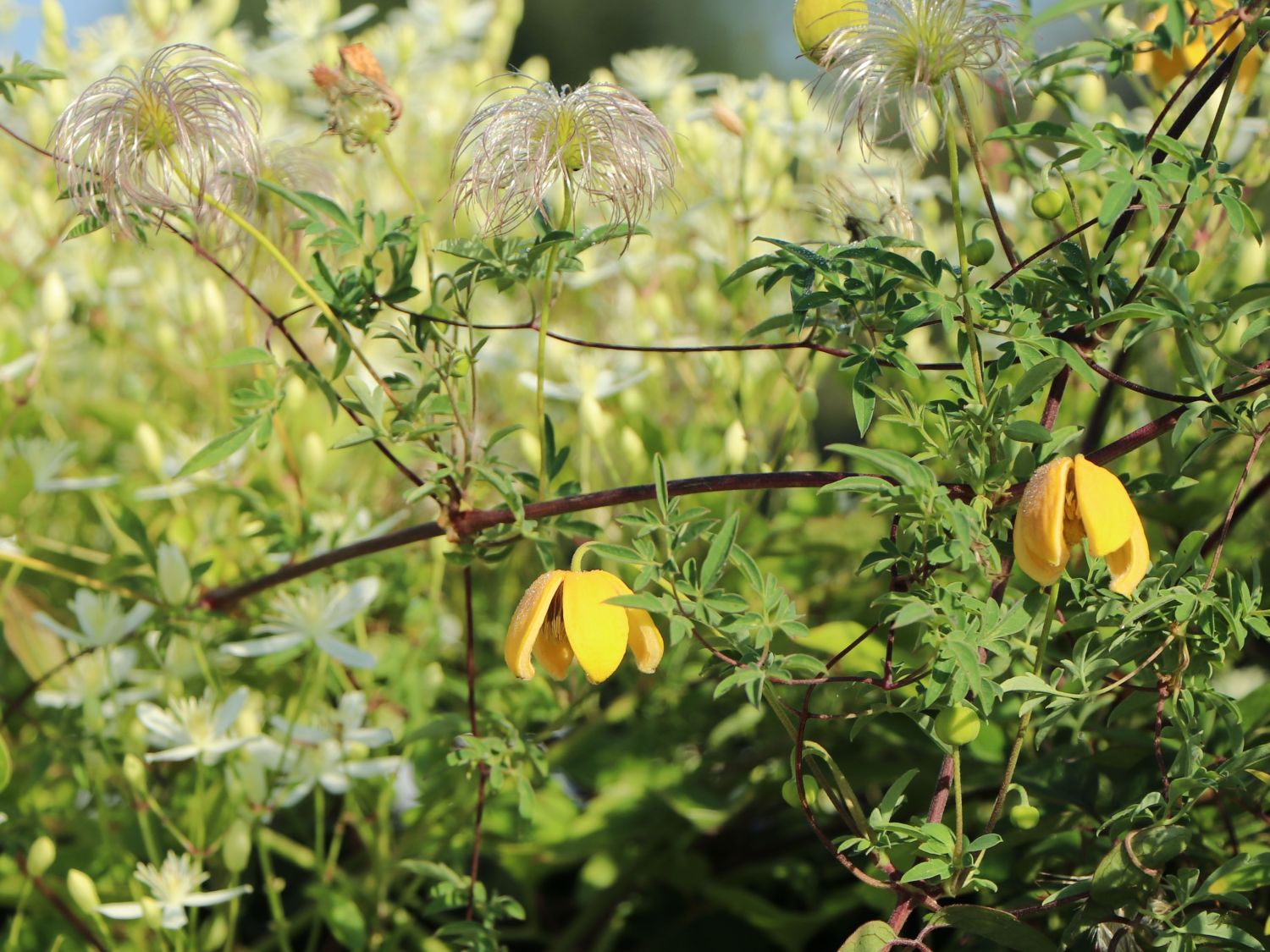
Clematis 'Orange Peel' / 'Last Dance' Clematis orientalis 'Orange Peel' / 'Last Dance
150-365-1 Clematis tibetana var. vernayi 'Orange Peel'. Clematis tibetana ssp. vernayi var. vernayi 'Orange Peel' bears nodding lemon yellow flowers that open from rounded buds and eventually expand with an acute upturn at the tips of the sepals. As they age, the fleshy flowers darken to orange. Lightly bluish green foliage is deeply dissected.
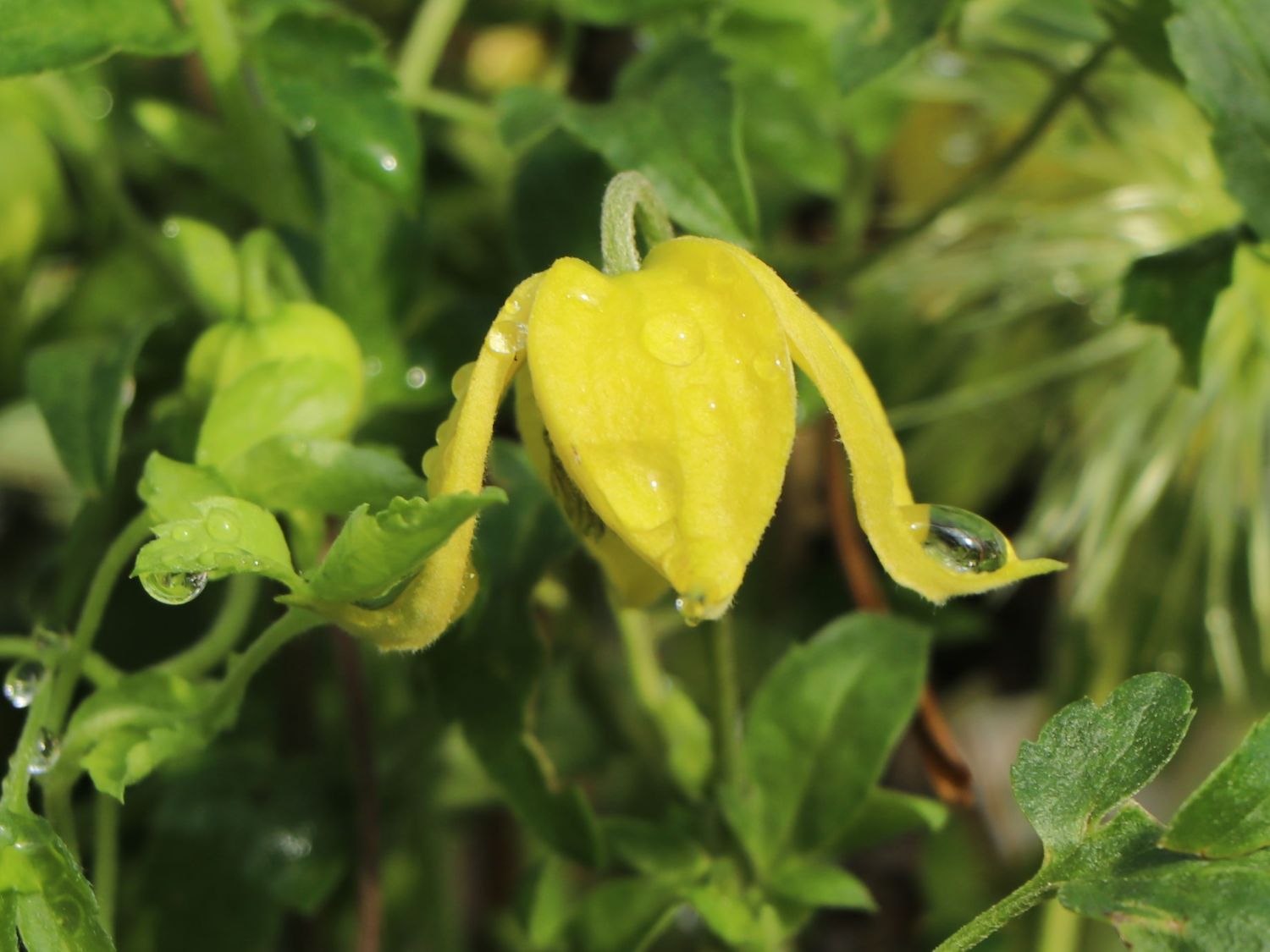
Clematis 'Orange Peel' / 'Last Dance' Clematis orientalis 'Orange Peel' / 'Last Dance
ORANGE-PEEL CLEMATIS CHINESE CLEMATIS Clematis tangutica Buttercup Family [Ranunculaceae] Flowers: Pappus: (off-white, long, compound) category status flower inner morph petals type stem smell coconut toxicity contact 10th Sept 2014, Rimrose Nature Reserve, Sefton, Merseyside. Photo: © RWD
+31aug13+(08a).jpg)
Gower Wildlife Crymlyn Burrows; a biodiversity hotspot
Buy this plant Plant nurseries 3 suppliers Size Ultimate height 4-8 metres Time to ultimate height 2-5 years Ultimate spread 2.5-4 metres Growing conditions Loam Chalk Sand Clay Moisture Moist but well-drained pH Acid, Alkaline, Neutral Colour & scent Position Full sun Partial shade Aspect East-facing or South-facing or West-facing Exposure
/Clematis(OrangePeel)_2014_07_30_BerryBrow_FarnleyTyas_Thurstonland_Shepley_DenbyDale_008p2.jpg)
Clematis (OrangePeel) / OrangePeel Clemetis / Orange Peel Clemetis / Chinese Clematis Wild
Orange-peel Clematis Russian Virgins's Bower Tube-flowered Clematis Phonetic Spelling KLEM-ah-tiss tan-GOO-tik-uh This plant has high severity poison characteristics. See below Description

Clematis Orange Peel (klokvormige gele bloemen, gelbe glockenförmige Blüten, bellshaped yellow
The Clematis 'Orange Peel' is also known as Clematis. This Ranunculaceae has got a maximum height of approximatly 400 centimetres. The Clematis 'Orange Peel' is not evergreen. Do you want to have more information or tips about the Clematis 'Orange Peel'? You're welcome to visit our garden centre but please remember: depending on the season we.

Clematis tibetana tangutica Bill MacKenzie Orange Peel Clematis Garden Plants
Orange-peel clematis (Clematis tangutica) Care Guide. Orange-peel clematis (Clematis tangutica) is a vine whose yellow flowers give it plenty of ornamental appeal. Its climbing nature makes it an excellent choice for growing on trellises, walls, fences, and other structures. The Latin name tangutica refers to the plant's origin in regions of China inhabited by the Tangut people.

Waldrebe Orange Peel Clematis orientalis Orange Peel günstig kaufen
xegs, ON, CA. Introduced. xegs Check List. View. Clematis tangutica is a species of plants with 1015 observations.
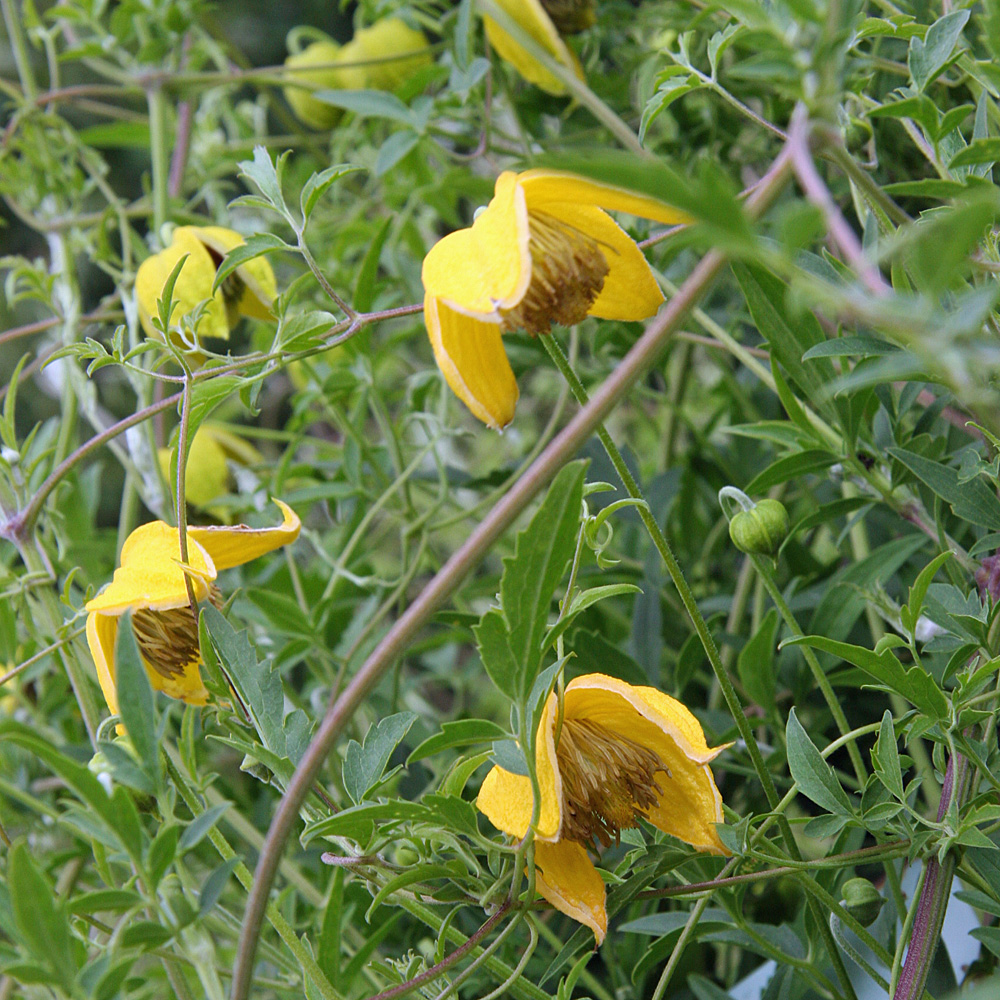
Waldrebe 'Orange Peel' / 'Last Dance' Native Plants Pflanzenversand
Orange Peel Clematis (C. tangutica) Small (2- to 4-inch) rich yellow blossoms of this clematis hang like little Chinese lanterns on stiff upright stems. After flowering, fuzzy silver seedpods hang on through winter. Rooguchi Clematis (C. 'Rooguchi') A non-vining, multi-stemmed clematis that grows 6 to 8 feet tall and 3 to 4 feet wide. The.
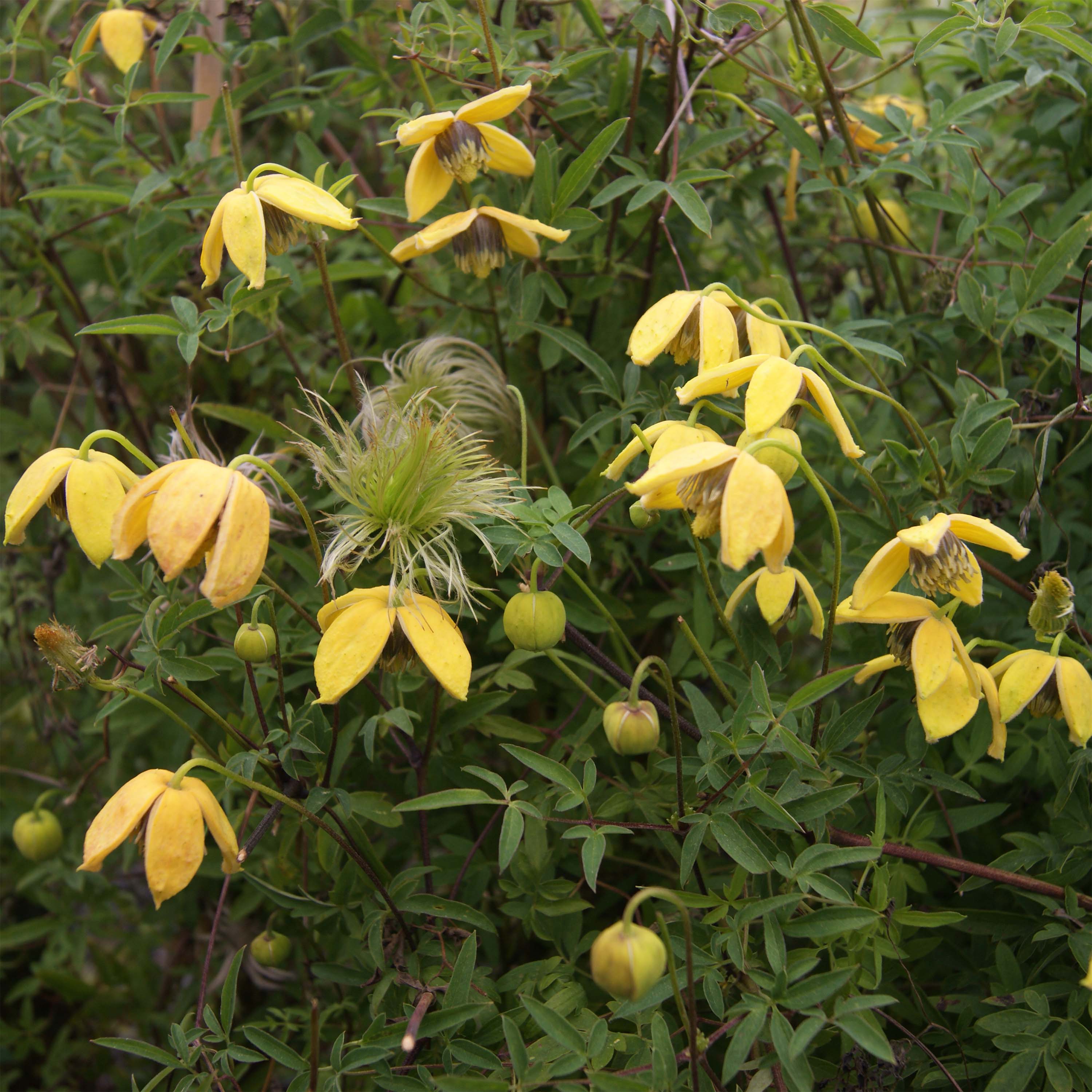
Clématite Orange Peel Clematis tibetana à clochettes jaune orangé
Plant description Masses of rich yellow, bell-shaped flowers from July to September and finely divided, mid-green leaves. One of the most popular varieties of late-flowering clematis, this variety is perfect for training over a wall, pergola or arch in full sun or partial shade. The large, silky seedheads provide interest into the winter months.